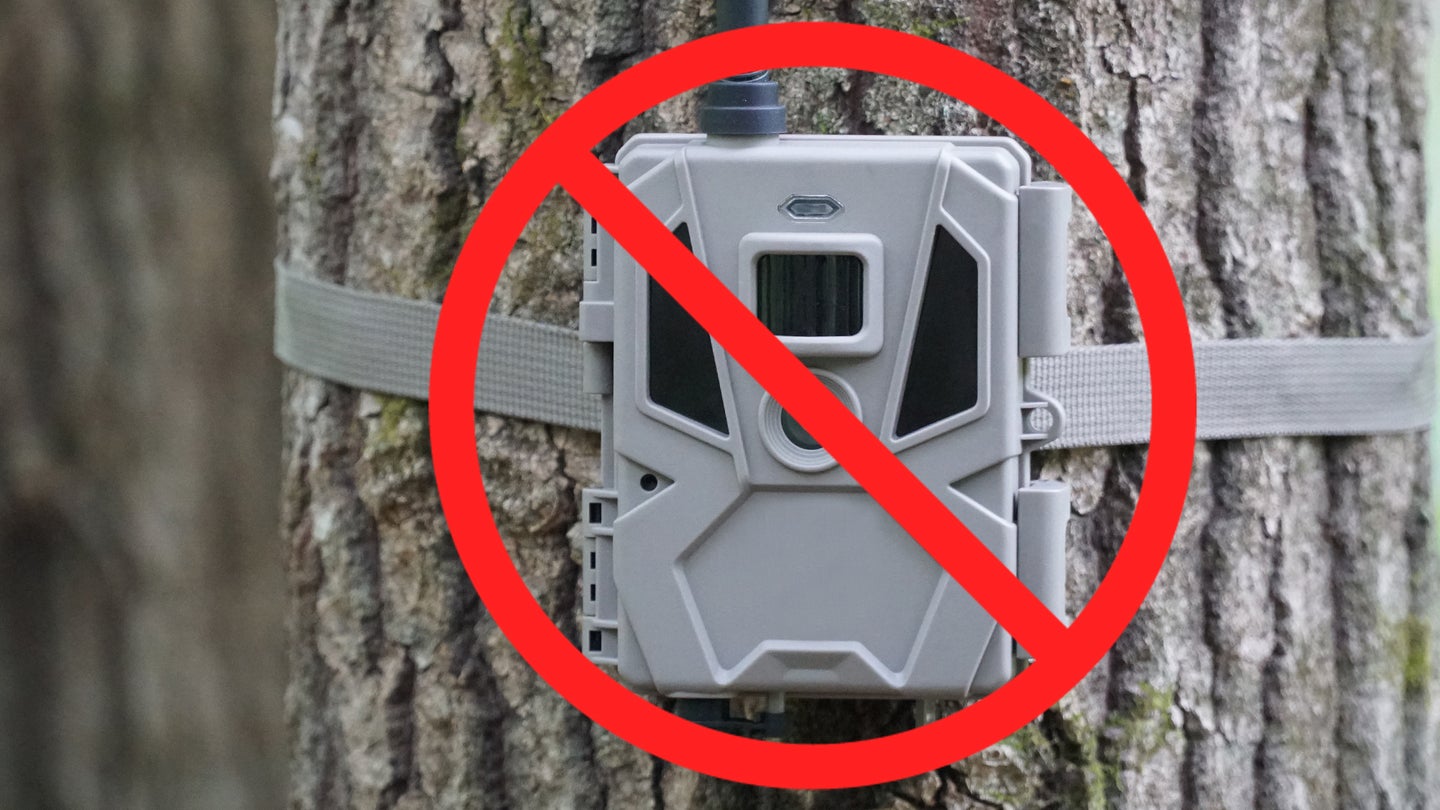Kansas Fish and Game Commission Bans Trail Cameras on Public Land

On March 9, the Kansas Department of Park & Wildlife (KDPW) Fish and Game Commission voted to prohibit the use of all trail cameras (cellular and conventional) on public lands in the state. The ban, which drew unanimous support from the seven-member commission, will apply year-round on all public lands owned and managed by the state, and it will go into effect before for the upcoming fall hunting seasons.
Speaking during the meeting, Commissioner Gerald Lauber said that trail cameras cause privacy issues and give rise to conflict when used on heavily-trafficked public land in Kansas. “There are some deleterious issues when it comes to trail cameras,” he said. “In some places … cameras are used to spy on other hunters. And some people recoil from [seeing] a camera. They’re private. They don’t want to have somebody take their picture and then have it on Facebook.” Lauber went on to say that trail cameras are sometimes used by hunters as a means of staking claim to a particular section of public land.
Sean Miller is an avid public-land user who hunts upland birds and deer in Shawnee County. He opposes the year-round trail-camera ban and expressed his concerns during the March 9 commission meeting. “I don’t think that limiting trail cameras is going to limit conflict on the wildlife areas quite frankly,” Miller said. “If fair chase is really a concern, we ought to be considering a ban on private land as well.”
Miller asked the Commission to consider an amendment that would alter the ban so that it applies only during the fall big-game seasons. Kansas hunters, he said, often use trail cameras during the off-season in order to confirm that a given deer has made it through the previous season alive.
Read Next: Are Game Wardens Watching You? – Part 1: The Case of the Hidden Trail Camera
“Those comments make sense,” Lauber said. “But if we’re going to have a regulation, we need to be able to enforce it as effectively as possible. It would be a lot simpler from an enforcement standpoint to have all or nothing.”
Kansas is made up of about three percent public land, Lauber said during the meeting. According KDPW Public Information Officer Nadia Marji, the ban applies to all KDPW lands and waters, as well as the one million-plus acres of private property enrolled in Kansas’ Walk-in Hunting Access Program. “The regulation will go into effect upon publication in the Kansas Register,” Marji told Field & Stream. “Deer hunters can expect this regulation to be enforced come this fall.”
The post Kansas Fish and Game Commission Bans Trail Cameras on Public Land appeared first on Field & Stream.
Articles may contain affiliate links which enable us to share in the revenue of any purchases made.
